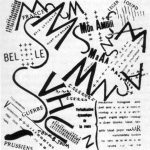The Situationist International: A Case of Spectacular Neglect
The Situationist International: A Case of Spectacular Neglect Sadie Plant The recent exhibitions of Situationist art and paraphernalia in London, Paris, and Boston, have given the Situationist International (SI) an unprecedented academic and cultural profile. Even during the movement’s most active period, when many of its ideas and practices were realised in the events in […]





